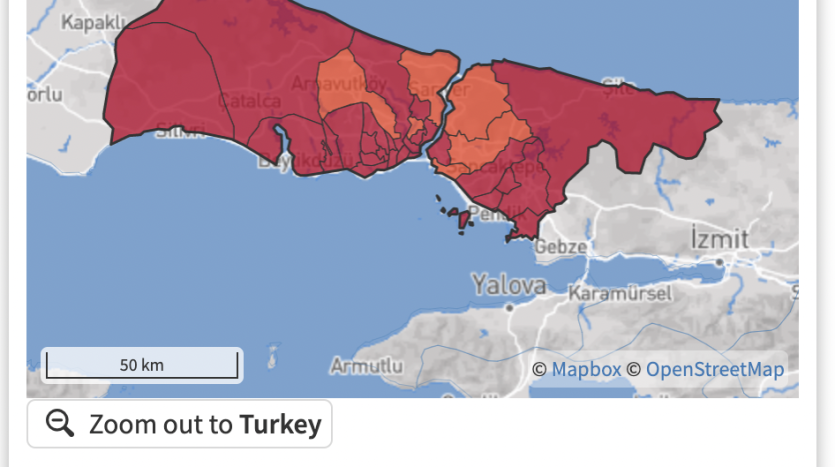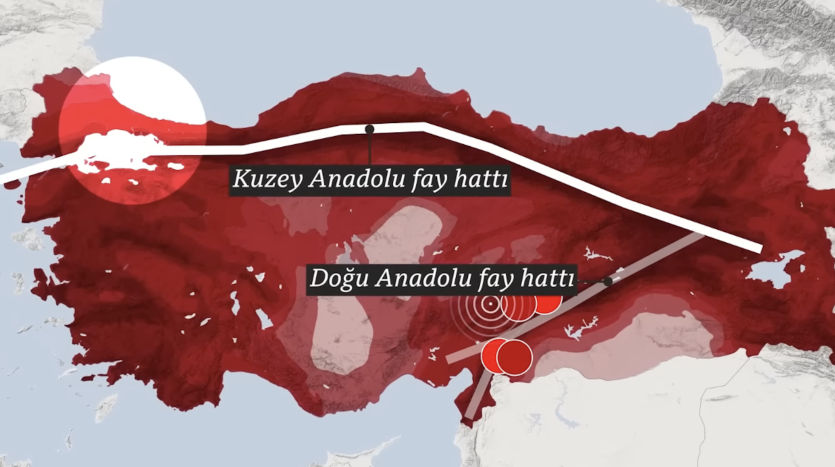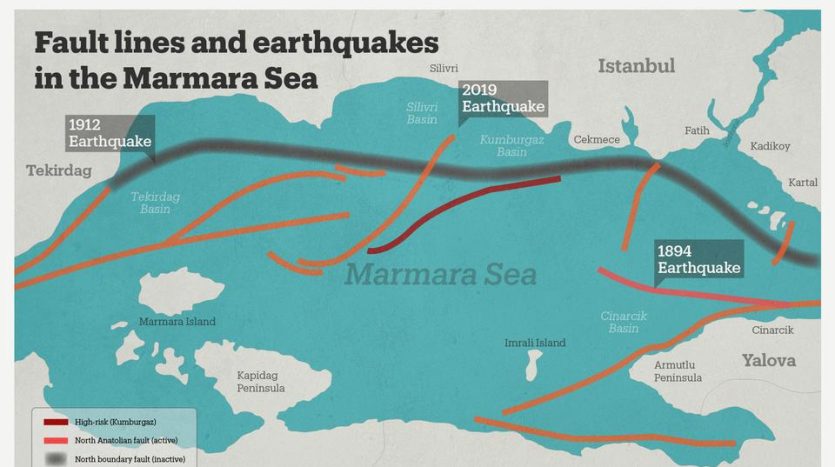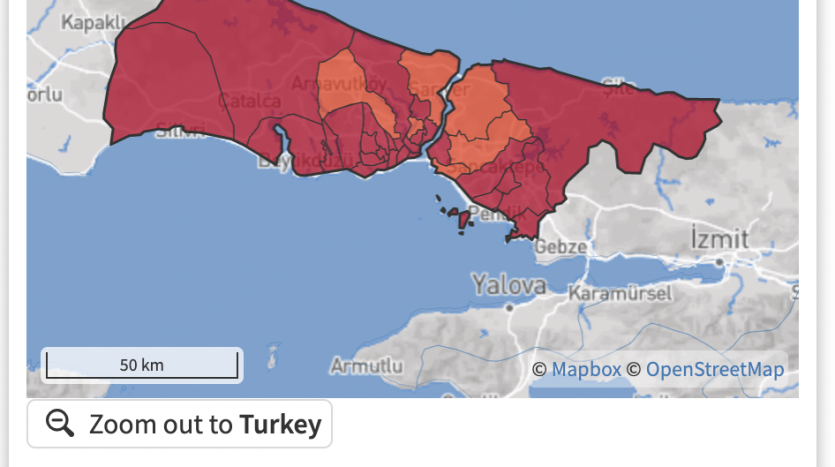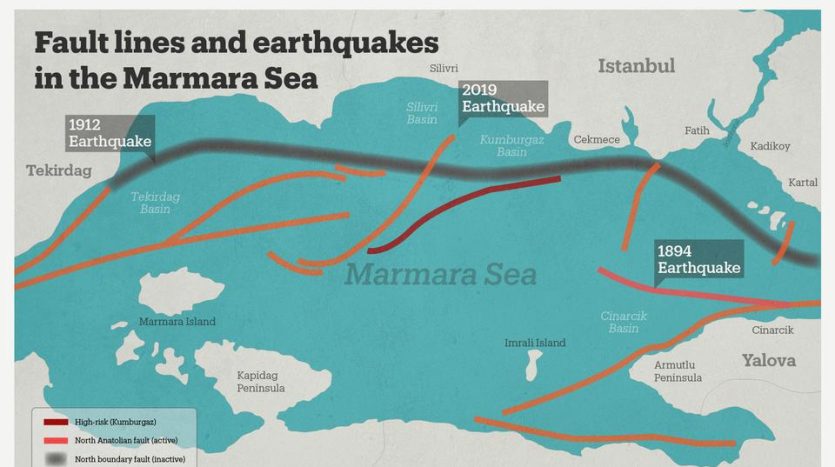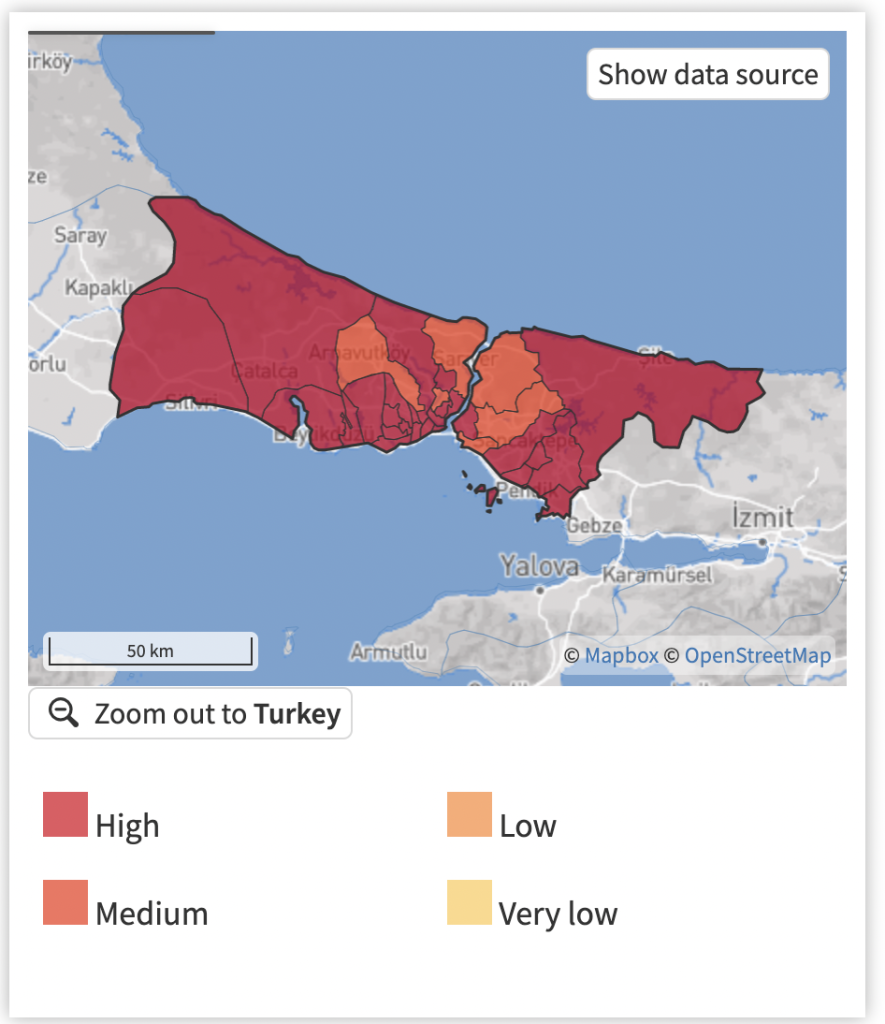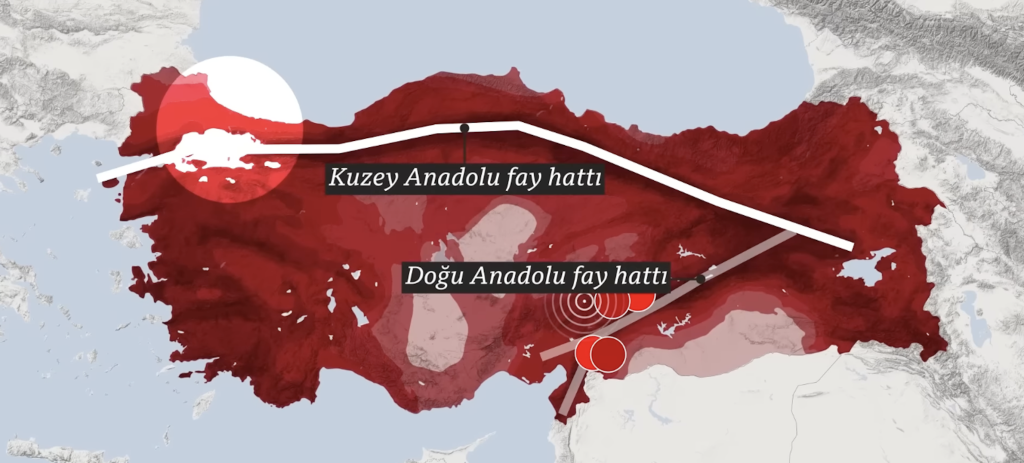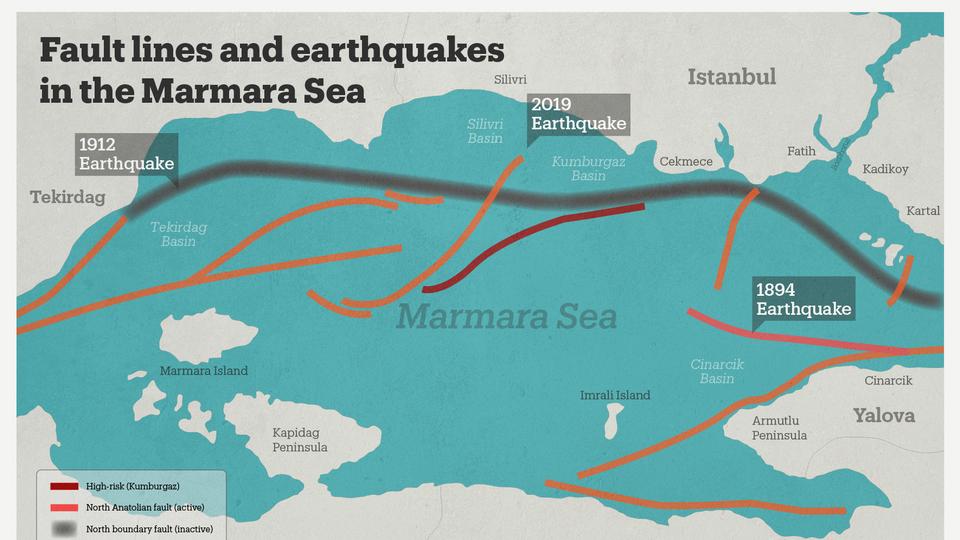Earthquake situation in Turkey 2023
Residents of Istanbul fear after massive earthquakes hit Turkey
Residents express concerns for their safety as experts say studies indicate a powerful Earthquake Turkey Istanbul will hit. As Turkey recovers from its deadliest quake in decades, some residents of Istanbul have already turned their mounting fears to the next big quake.
Many people living in Turkey’s largest city has big concerns particularly after Monday’s powerful 7.8 and 7.6-magnitude earthquakes that killed more than 21,000 people and killed more than 80,000 were injured. Furthermore, 3.000 people were killed in Syria. The authorities assume that the death toll will continue to rise.
Earthquakes in Istanbul
The country is particularly prone to earthquakes because it lies at the intersection of several tectonic plates. Earthquakes generally occur along the boundaries between plates. The North Anatolian Fault, which separates the Eurasian and Anatolian plates, runs near Istanbul. A lot of the data various experts have on past earthquakes and through certain models, say that an earthquake can hit Istanbul on short term. There are about 90,000 buildings in the megalopolis with a population of about 20 million people, which are very vulnerable to earthquakes. Another 170,000 buildings have a medium risk status in the event of a strong earthquake, according to Istanbul Municipality’s research.
More than 6,400 buildings collapsed in southeastern Turkey after Monday’s earthquakes.Many people would consider moving to a newer building, but finding one at reasonable prices is very difficult these days.
Istanbul has about 20 million inhabitants and thousands of buildings that are not ready for an earthquake
The high death toll from the massive earthquake in southeastern Turkey and northern Syria is due in large part to the poor structural integrity of thousands of buildings, the experts say. Because of this, Istanbul, a city of 15 million that geologists predict will eventually be hit by a powerful earthquake, could see tens of thousands dead unless action is taken against the city’s thousands of buildings that are neither earthquake-proof are still resilient. What we are seeing today in south-eastern Turkey is just a preview of what will happen in Istanbul. While efforts have been made to modernize building codes and protect against vibration, researchers see a major challenge in making older buildings safe enough to withstand an earthquake.
Istanbul near a Major fault
Seismologists predict that within the next 70 years, an earthquake of magnitude 7.0 or stronger is very likely to hit Istanbul, located in near the North Anatolian Fault. When that happens, we are talking about hundreds of thousands affected due to the population of Istanbul. Most buildings in Istanbul are not ready for such a disaster. This certainly worries the experts because earthquakes move along this fault line and because the buildings in Istanbul are not designed to be earthquake-proof.
Building constructions and Earthquakes in Turkey
The problems in Istanbul are the same problems that came to light in this recent earthquake: many of the buildings in Turkey appear to be extremely vulnerable. Another issue is the “pancake” problem, which is essentially the interior of the building collapsing, a sign that the interior floors and structures are not bonded to the exterior wall sufficiently. It is likely that many of the structures have only lightly reinforced concrete or masonry. They may also be missing the steel reinforcement.
Inspections of Property in Turkey
The government improved building standards after a 1999 magnitude 7.6 earthquake struck the western part of Turkey’s Marmara region, which includes Istanbul, killing around 17,500 people. After this earthquake, Turkey’s seismic design code was improved, and in the late 2000s, the Turkish government launched a large-scale urban redevelopment plan to replace earthquake-resistant buildings with new, improved ones.
According to official figures, there are 817,000 buildings in Istanbul that were built before the year 2000, which is about 70 percent of all constructed buildings in Istanbul. After last week’s tremors in south-eastern Turkey, some buildings built after 2000 collapsed. However, most of the damaged buildings were reportedly built before the year 2000.
Most of the buildings constructed after the 1999 earthquake in Turkey complied with the new regulations and are made of improved materials. However, corruption in the construction sector in Turkey is high. And that’s why there were abuses and we see it in the earthquake in southeastern Turkey. Various recently built and luxurious projects also collapsed.
Earthquake Risk İzmir
According to current knowledge, the earthquake hazard in Izmir is classified as medium. This means that there is a 10% chance that a potentially damaging earthquake will occur in your project area in the next 50 years. Based on this information, the impact of the earthquake must be considered at all stages of the project, especially during design and construction. Project planning decisions, project design and construction methods must take seismic risk into account. More detailed information must be obtained in order to adequately take account of the risk situation.
For more information regarding Earthquakes in Turkey, you can always contact us.

